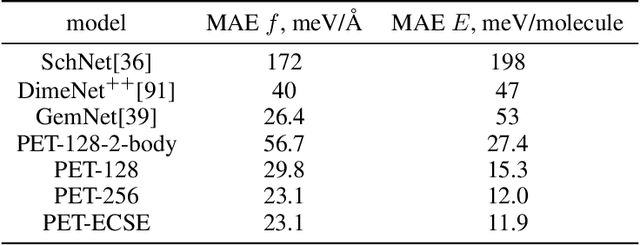Smooth, exact rotational symmetrization for deep learning on point clouds
Paper and Code
May 30, 2023



Point clouds are versatile representations of 3D objects and have found widespread application in science and engineering. Many successful deep-learning models have been proposed that use them as input. Some application domains require incorporating exactly physical constraints, including chemical and materials modeling which we focus on in this paper. These constraints include smoothness, and symmetry with respect to translations, rotations, and permutations of identical particles. Most existing architectures in other domains do not fulfill simultaneously all of these requirements and thus are not applicable to atomic-scale simulations. Many of them, however, can be straightforwardly made to incorporate all the physical constraints except for rotational symmetry. We propose a general symmetrization protocol that adds rotational equivariance to any given model while preserving all the other constraints. As a demonstration of the potential of this idea, we introduce the Point Edge Transformer (PET) architecture, which is not intrinsically equivariant but achieves state-of-the-art performance on several benchmark datasets of molecules and solids. A-posteriori application of our general protocol makes PET exactly equivariant, with minimal changes to its accuracy. By alleviating the need to explicitly incorporate rotational symmetry within the model, our method bridges the gap between the approaches used in different communities, and simplifies the design of deep-learning schemes for chemical and materials modeling.
 Add to Chrome
Add to Chrome Add to Firefox
Add to Firefox Add to Edge
Add to Edge